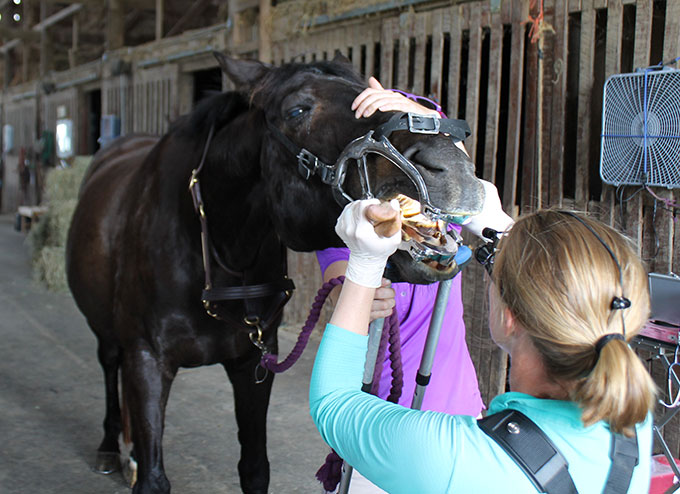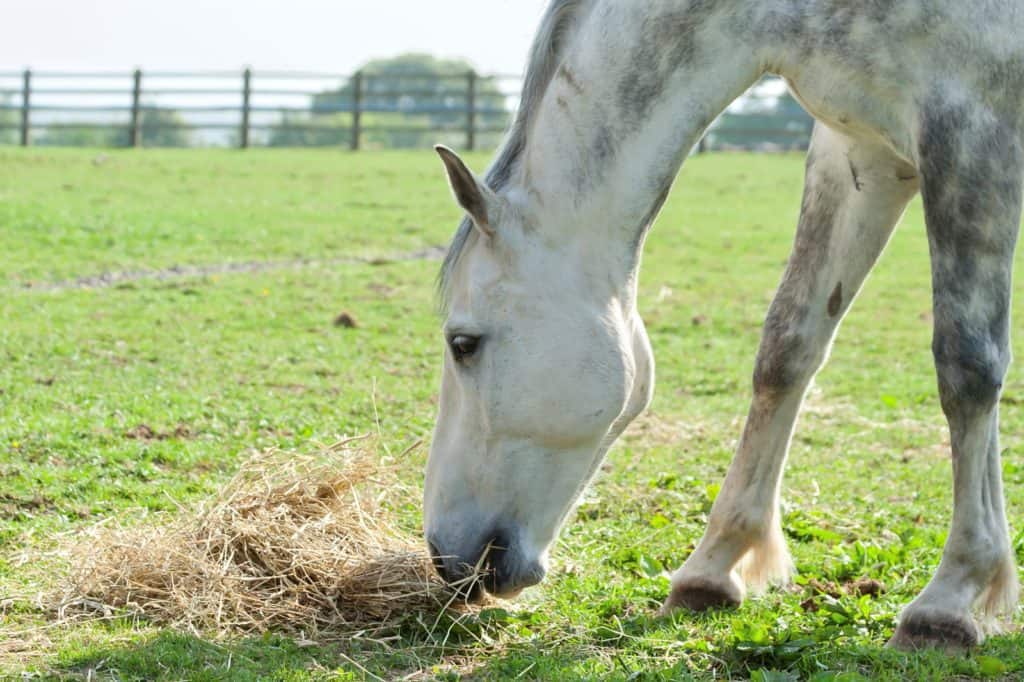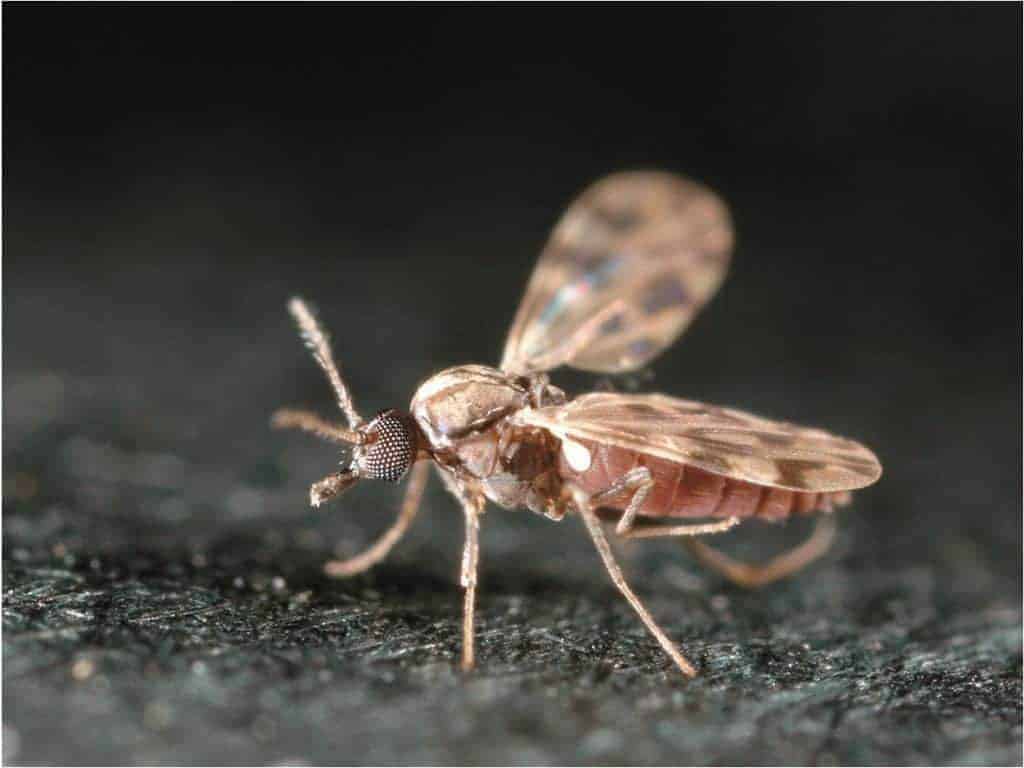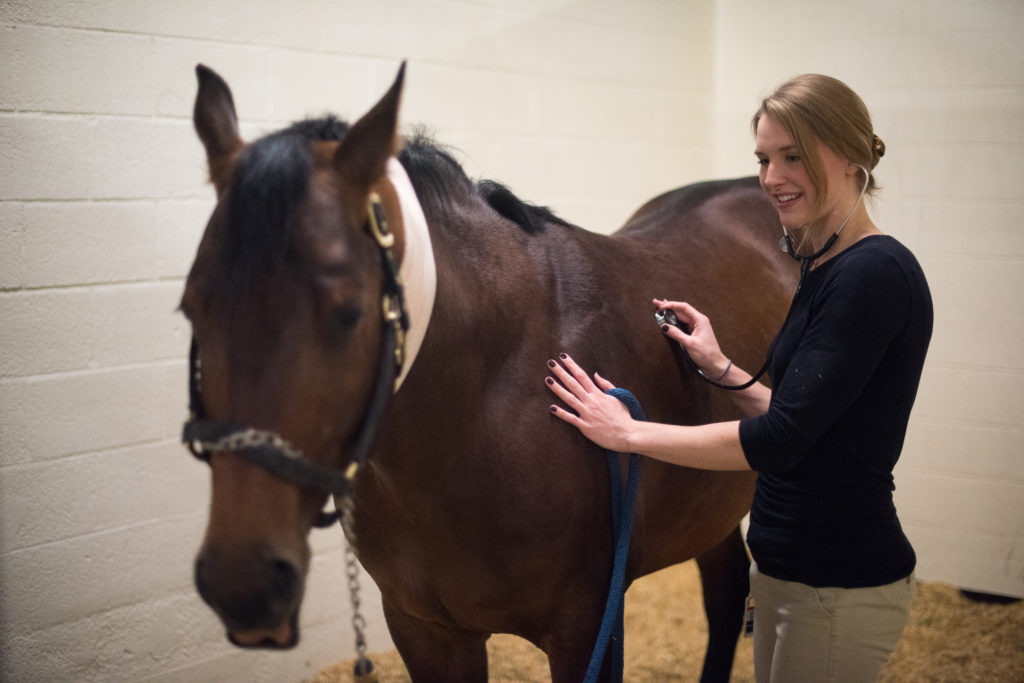
What is a Coggins Test?
Dr. Angela Pelzel-McCluskey gives an overview of how horses are tested for equine infectious anemia.
Horse-health-problem risk factors, prevention, diagnosis, and treatment

Dr. Angela Pelzel-McCluskey gives an overview of how horses are tested for equine infectious anemia.

Dr. Angela Pelzel-McCluskey gives an overview of equine infectious anemia, a deadly disease in horses, and explains why it’s important to prevent its spread.

With an estimated 88% of horses over 20 years of age diagnosed with dental disease, veterinarians must be sure to maintain these patients differently than their younger counterparts.

Rotavirus is a leading cause of diarrhea in foals up to six months of age at breeding farms worldwide.

Three horses in Clark County have tested positive for EHV-1, and three facilities there have been quarantined.

The unvaccinated 3-year-old Miniature Horse from Lowndes County is recovering with supportive care.

Your old horse’s rations might not need to change just because he’s got a few more gray hairs around his eyes. Still, owners should consider some key points when feeding their seniors.

Some products found on farms are flammable, toxic, or hazardous to human and animal health. Learn more about how to use, store, and discard them properly.

Riding before your horse gets fed could put him at risk for gastric ulcers. Find out why.

Researchers found that, overall, the British owners surveyed had poor awareness of bugs (such as mosquitoes and midges) and insect-transmitted diseases that could affect their horses.

Researchers found that firocoxib and flunixin meglumine provided similar levels of pain control after colic surgery, but firocoxib resulted in reduced evidence of endotoxemia at 48 hours post-surgery.

Feed your roly-poly pony the way Nature intended to prevent obesity-related diseases such as laminitis and equine metabolic syndrome.

Measuring the biomarker creatine kinase in abdominal fluid can help distinguish horses with ischemic (lacking blood flow) intestine due to a strangulating lesion—and, thus, require surgery—from those without.

While physicians have used capsule endoscopy in humans for more than a decade, it’s only recently become commercially available on the veterinary market for dogs and shows promise for use in horses.

From infectious disease to microbial imbalance in the gut, causes of chronic diarrhea in horses run the gamut. And, veterinarians agree, finding a solution should be a methodical trial-and-error process.

Veterinarians and horse owners alike consider colic the most important equine health care problem in need of more answers.
Stay on top of the most recent Horse Health news with
"*" indicates required fields